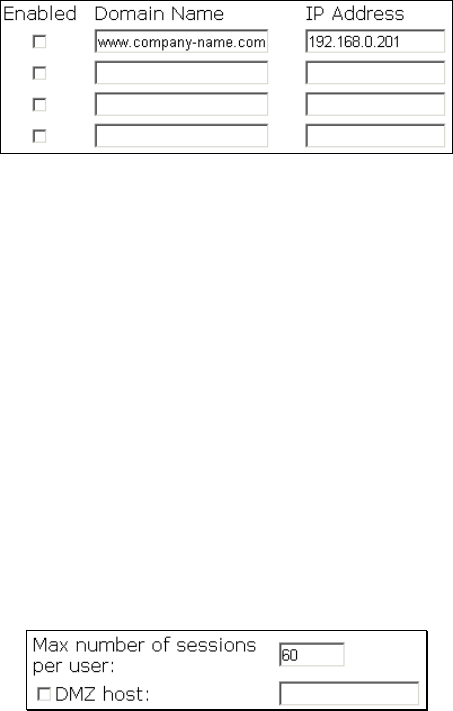
40
2.11.2.2. Static DNS Mappings
Fig. 61. Static DNS mappings.
By Static DNS Mappings, an internal server can be given a domain name, so that other hosts on the
intranet can access the server by its domain name instead of by its IP address. For example, an inter-
nal Web server for the intranet, say 192.168.0.2, may be associated with the domain name,
www.company-name.com.
To give an internal server a domain name:
1. Specify the domain name and the private IP address of the internal server.
2. Select the corresponding Enabled check box for the internal server.
2.11.3. NAT
2.11.3.1. Basic
Fig. 62. Basic NAT server settings.
When the Router is in Router with a Static-IP DSL/Cable Connection mode, the NAT server func-
tionality can be enabled or disabled.
You can restrict the maximum number of user traffic sessions by specifying the Max number of ses-
sions per user setting. In this way, you can prevent a single user from consuming too many network
resources by initiating a large number of network sessions.
A DMZ (DeMilitarized Zone) host receives all unrecognized TCP/IP packets from the NAT server on
the Router; therefore TCP/IP networking applications running on the DMZ host would have better
compatibility with NAT.
To specify the DMZ host:
z Enter the private IP address of the computer to be used as a DMZ host, and select the corre-
sponding check box.


















